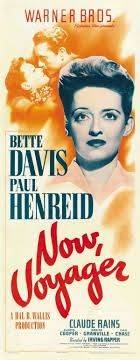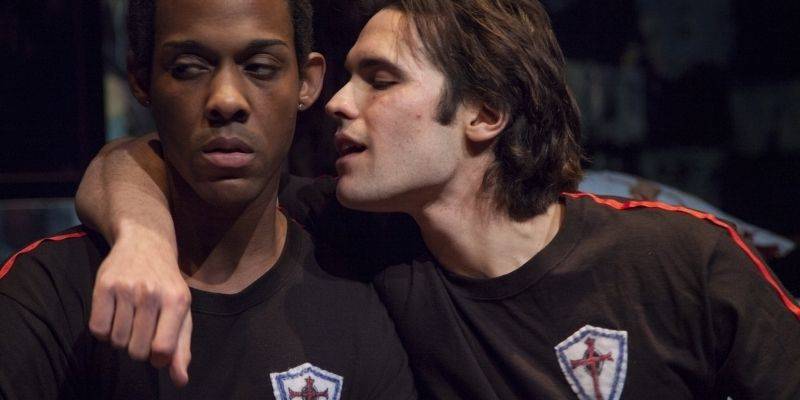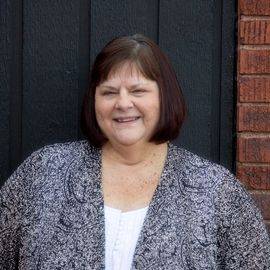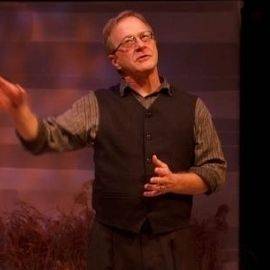Writers are thieves. It’s just a fact. We steal from our families’ lives, our friends’ lives and our own personal lives to tell a tale. So when I was asked to find a nifty theatre-related article to fill the gap between season announcements and production beginnings, it should surprise no one that I stole the questions from a conversation I had recently. Theatre people are not that much different than the rest of humanity; everyone likes to talk about their avocation. And a gathering of theatre folk can, at its best, turn into an intergenerational discussion in which those with experience can impart to those who are just beginning. At one such meeting, recently, a young man asked me four questions about my interest in directing; and, as any self-respecting writer would, I’m now stealing those questions: What started my interest in directing; What is my favorite show I’ve done; What is my fantasy project that hasn’t happened yet; and What are shows I’d love to do, but am afraid our community wouldn’t flock to? After thinking for a few moments, my answers came quickly and were intriguing to me.
 What made me want to direct? I’d have to go back to high school and Mrs. Tosetti and Mr. Davito’s musical productions. I was a singer who was introduced to acting largely because we had very few boys who would participate in theatre. Music and theatre were not a popular kid’s pursuit in my school, and we needed a lot of help both on stage and behind the scenes. Since it was a small school and I was really eager to work on anything theatrical, I got a lot of opportunities to design sets and costumes, help directors discuss works and choices and even help cast my senior year. My initial interest probably predates this exposure to actual productions, coming from watching vintage black and white films on a local St. Louis affiliate station. This was pre-cable television, so our channels were limited. I remember watching Bette Davis in Now, Voyager and Dark Victory and thinking those productions were a glimpse of Heaven. I also remember watch John Wayne in Wake of the Red Witch and Humphrey Bogart in Dark Passage and enjoying the blend of drama and style they all possessed. When I was a kid, I thought I could fuse those components into any work, and of late, I’ve been fortunate enough to do so.
What made me want to direct? I’d have to go back to high school and Mrs. Tosetti and Mr. Davito’s musical productions. I was a singer who was introduced to acting largely because we had very few boys who would participate in theatre. Music and theatre were not a popular kid’s pursuit in my school, and we needed a lot of help both on stage and behind the scenes. Since it was a small school and I was really eager to work on anything theatrical, I got a lot of opportunities to design sets and costumes, help directors discuss works and choices and even help cast my senior year. My initial interest probably predates this exposure to actual productions, coming from watching vintage black and white films on a local St. Louis affiliate station. This was pre-cable television, so our channels were limited. I remember watching Bette Davis in Now, Voyager and Dark Victory and thinking those productions were a glimpse of Heaven. I also remember watch John Wayne in Wake of the Red Witch and Humphrey Bogart in Dark Passage and enjoying the blend of drama and style they all possessed. When I was a kid, I thought I could fuse those components into any work, and of late, I’ve been fortunate enough to do so.
What’s my favorite show today? This is a tough one, because, like lovers, your favorite shows tend to be the one you’re involved with at any given moment. Right now, for instance, I am wading into the depths of Moises Kaufman’s 33 Variations, which I’ll direct in the fall.
What project would I love to do, but haven’t been able to due to budget or venue restrictions? I have always loved the musical Gypsy and would love to have the actors and the budget to do a first-rate production. The musical Follies has also eluded me for similar reasons. As for plays, I’d have to say Tennessee Williams’ Cat on a Hot Tin Roof or Suddenly, Last Summer are both pieces I’d love to play with.

As for What our community will or won’t support, the answer becomes complex. I have had the great honor of directing a diverse amount of “risky” works. Angels in America, Part I: Millennium Approaches and Dead Man’s Cell Phone, at Parkland College Theatre, and How I Learned to Drive and Good Boys and True (pictured above), at the Station Theatre, all ran the risk of not finding an audience, and yet all were successful to various degrees. At the time, I really was bummed that the powers-that-be thought the second part of Angels wasn’t viable, partially due to a lower audience expectation and partially due to my greenness as a director. The concept was wild and out there and not what I would do now, but I would have loved to see Perestroika come to life. I have always loved darker works, but one can’t guarantee that an audience will be interested; let’s be real, no one wants to put a lot of time into shows that have small houses in attendance. We want everyone to see what we’ve done!
Of all the plays that I’ve never gotten to do, the standout is Daniel Talbott’s Slipping. It’s a first effort from an emerging playwright, and it deals with adolescent angst. I think part of the problem with getting a “green light” on this project is that, when read by a theatrical selection committee, the folks making the call imagine their own children in similar circumstances and they sort of short-out, causing such a script to land with a thud in the NO pile. Slipping is a delicate and beautiful story of what people can — and sometimes must — survive. A gay teen who has lost his father and is estranged from his academic, distracted mother relocates with her from San Francisco to the Midwest. While he and his mother work through their issues, we see his budding relationship with a local jock juxtaposed with his memories of the past abusive relationship he has in San Fran with a truly dangerous boy. There is hope in there, but what can happen to a kid despite his parents’ best efforts is also shown in a raw and heartbreaking fashion. Sounds fun, right? Wanna buy a whole fistful of tickets for your local Rotary group or Red Hat club? Not so much? Therein lies the dilemma.
After reviewing my own answers, I wondered how other directors in the community would respond to the same questions, and so I hit my trusty email list and set up a virtual round-table of local directing talents from four local theaters: Krannert Center for the Performing Arts, The Station Theatre, Parkland College and CUTC. The respondents represent a fantastic range of styles and experience.
 J. W. Morrissette (right) is administrative faculty in the University of Illinois Theatre Department and has directed over 60 shows for various venues in our community, including Parkland College Theatre’s multiple incarnations of the neverending Nunsense franchise. In the fall, he will be directing Thornton Wilder’s The Skin of Our Teeth at Krannert Center, followed by the musical The Drowsy Chaperone for Parkland College Theatre in the spring.
J. W. Morrissette (right) is administrative faculty in the University of Illinois Theatre Department and has directed over 60 shows for various venues in our community, including Parkland College Theatre’s multiple incarnations of the neverending Nunsense franchise. In the fall, he will be directing Thornton Wilder’s The Skin of Our Teeth at Krannert Center, followed by the musical The Drowsy Chaperone for Parkland College Theatre in the spring.
Rick Orr is the Artistic Director and a founding member of the Celebration Company at the Station Theatre and has directed over 110 shows. He, like many of the respondents, finds the show he is currently working on to always have his heart, but lists amongst his favorites The Boys in the Band, Follies, Red, Next to Normal, and last season’s popular Station production of Vanya and Sonia and Masha and Spike. He is directing a top-secret, direct-from-Broadway production for The Station this spring.
 Like Orr, Gary Ambler (left) is a founding member of the Celebration Company and a veteran actor and director with many credits in his theatrical quiver. He has directed approximately 100 productions and counts among his favorites Innaurato’s Gemini, for its “insanity” and “miracle design elements,” and A Steady Rain, “for its elegance.” Ambler will direct Venus in Fur for The Station this fall and The Sparrow for Parkland next spring.
Like Orr, Gary Ambler (left) is a founding member of the Celebration Company and a veteran actor and director with many credits in his theatrical quiver. He has directed approximately 100 productions and counts among his favorites Innaurato’s Gemini, for its “insanity” and “miracle design elements,” and A Steady Rain, “for its elegance.” Ambler will direct Venus in Fur for The Station this fall and The Sparrow for Parkland next spring.
And then there’s Kay Bohannon Holley, a prominent Station contributor whose 20-plus directing credits include last season’s Other Desert Cities at the Station. When pressed, her favorite was the drama Wit for The Station due to “the beauty of the script and the power of its construction, the lovely poetry of John Donne, the stellar cast and Barbara Evans’ knockout performance.”
 In contrast, Katie Prosise (right) is a relative newcomer to directing. Better known as an actress (in shows like the Station’s SubUrbia and Mauritius), she made her directorial debut at the Station last season with Sarah Ruhl’s The Clean House. Her next foray, the drama A Kid Like Jake, will kick off the Station’s 2014-2015 season.
In contrast, Katie Prosise (right) is a relative newcomer to directing. Better known as an actress (in shows like the Station’s SubUrbia and Mauritius), she made her directorial debut at the Station last season with Sarah Ruhl’s The Clean House. Her next foray, the drama A Kid Like Jake, will kick off the Station’s 2014-2015 season.
LaDonna Wilson is a veteran educator at Central High School and the director of CUTC’s popular and charming Mary Poppins. She has directed over 100 productions for the school and 15 for community theatres in the area, including CUTC and ARTco. Her favorites include Glengarry Glen Ross for ARTco in Tuscola and The Laramie Project, RENT, and A Chorus Line for Central High.
 Randi Jennifer Collins-Hard (left) is a veteran of the C-U theatre scene who has directed over 100 productions and founded the theatre program at Parkland College. Her favorite productions include Parkland’s The Laramie Project, due to her choice of casting each character with an individual actor. Playwright Moises Kaufmann visited the cast for a few hours and gave his blessing while he was researching 33 Variations at the U of I. She also loves her production of The Exonerated because it had several new actors. One of the performances was attended by Delbert Tibbs, a man whose struggle is actually documented in the piece. She also speaks fondly of Five Kind of Silence and Frozen.
Randi Jennifer Collins-Hard (left) is a veteran of the C-U theatre scene who has directed over 100 productions and founded the theatre program at Parkland College. Her favorite productions include Parkland’s The Laramie Project, due to her choice of casting each character with an individual actor. Playwright Moises Kaufmann visited the cast for a few hours and gave his blessing while he was researching 33 Variations at the U of I. She also loves her production of The Exonerated because it had several new actors. One of the performances was attended by Delbert Tibbs, a man whose struggle is actually documented in the piece. She also speaks fondly of Five Kind of Silence and Frozen.
Mikel L. Matthews Jr. has regularly directed for The Station, most recently with productions of Evil Dead: the Musical and Chess. He got his start as a student in Parkland College’s theatre program and has since directed 10 shows for the community and 21 shows at the high school level in Waukegan and Rantoul. Of all these, his favorite directorial effort was the Station’s acclaimed production of the musical Rent.
Here’s what each had to say:
Smile Politely: What is the first play you attended that made you want to direct, and why did it make you want to put on the many hats of the director?
 Rick Orr (right): It was not a play I saw, but rather several plays that I was in during my first year at the U of I because I thought that to be in theatre, you had to be an actor, and I soon found out that I was not comfortable being an actor. Pretending to be someone else and having people look at me was never my thing, and so, I discovered that I liked being behind the scenes and making the stage pictures, working with the words of the playwright. My advisor at the time told me that I had made a good choice. I was the first undergrad to be given a slot in the Studio Theatre to direct, and then the following year, I was given a slot in the summer to direct in the Tyron Theatre.
Rick Orr (right): It was not a play I saw, but rather several plays that I was in during my first year at the U of I because I thought that to be in theatre, you had to be an actor, and I soon found out that I was not comfortable being an actor. Pretending to be someone else and having people look at me was never my thing, and so, I discovered that I liked being behind the scenes and making the stage pictures, working with the words of the playwright. My advisor at the time told me that I had made a good choice. I was the first undergrad to be given a slot in the Studio Theatre to direct, and then the following year, I was given a slot in the summer to direct in the Tyron Theatre.
Randi Jennifer Collins-Hard: Harold Pinter’s, The Homecoming. I saw it as a youth at Center Stage in Baltimore. My mom took me, and it changed my life.
Gary Ambler: In the beginning, I mostly wanted to direct because I thought it might make me a better actor. The first play may have been a BBC production of A Midsummer Night’s Dream I saw in my early teens; it made me want to find the script, perform the parts, pull it apart, and see how the pieces fit together.
Kay Bohannon Holley: Well, it wasn’t really a play; it was a “readers’ theatre” production of works by Dr. Seuss. It was creative, fun and thought-provoking. And the pile of turtles was a hoot.
J. W. Morrissette: A Midsummer Night’s Dream. Years ago, in a land far, far away (I avoid specifics to protect the innocent), I saw an absolutely dismal production of this show. I was young and completely ignorant and overly confident and thought, “Hey, I can do that better! And that play demands it!” So, really, simply a frustration with what I saw at one show made me contemplate directing. I had no idea at all what that would entail, in regard to my future.
 Mikel L. Matthews Jr. (left): There wasn’t a particular play. I’d wanted to try my hand at directing almost from the first. I did a lot of acting and was a theatre scholarship student at Parkland. Randy Millas, who I’d been in Dracula with (he was Dracula, I was Renfield) and who had been a good friend, died the morning after I found out I was part of a world premiere musical. That partnership had meant so much to me on stage that to act without it was very painful. I went to directing, rediscovered my love of theatre, and went from there. It took me years to enjoy acting in a scripted show again.
Mikel L. Matthews Jr. (left): There wasn’t a particular play. I’d wanted to try my hand at directing almost from the first. I did a lot of acting and was a theatre scholarship student at Parkland. Randy Millas, who I’d been in Dracula with (he was Dracula, I was Renfield) and who had been a good friend, died the morning after I found out I was part of a world premiere musical. That partnership had meant so much to me on stage that to act without it was very painful. I went to directing, rediscovered my love of theatre, and went from there. It took me years to enjoy acting in a scripted show again.
Katie Prosise: It was a series of directors, good and bad, that made me want to direct. Each one taught me something about the job: the use of actors’ time, terrible and good time management, the needs and challenges of staffing, and I realized I could probably do it. Then, after some time, I just wanted it.
LaDonna Wilson: I saw The Wizard of Oz when I was six years old. I then started writing plays and making kids in the neighborhood perform them under my direction. In high school, I helped the directors with each production. When I was asked to direct a play for my first teaching job, I was very happy to say yes.
SP: What is a show you’ve always wanted to direct that has eluded you due to budgetary or facility/venue constraints, and why would you love to sink your teeth into it?
Wilson: I can’t think of any play that I would like to direct that I haven’t done. I would like to do Avenue Q someday, but the high school version is pretty weak. I am lucky enough to do seven shows a year at Central High School, so I can do some shows just for the sake of art without worrying about big audiences. I also directed many shows at ARTco in Tuscola, which allowed me to do shows with adults as well.
Morrissette: I have had the opportunity to do so many great shows I never thought anyone would allow me to do. The only one I have not done is the musical La Cage Aux Folles. I find that show to be incredibly ripe for entertainment, while at the same time being about something that fascinates me. The major issue is nobody can afford the needed budget just for the sequins, let alone the entire musical.
 Holley (right): An adaptation of Johnny Got His Gun by Dalton Trumbo or Slaughterhouse Five by Kurt Vonnegut. The real holdup is that I would want to do the adaptation myself — and I haven’t gotten down to it. I think both of these are incredibly powerful anti-war tales with fine elements of magic in them. Both have complicated points of view to deal with and, well, just great language.
Holley (right): An adaptation of Johnny Got His Gun by Dalton Trumbo or Slaughterhouse Five by Kurt Vonnegut. The real holdup is that I would want to do the adaptation myself — and I haven’t gotten down to it. I think both of these are incredibly powerful anti-war tales with fine elements of magic in them. Both have complicated points of view to deal with and, well, just great language.
Collins-Hard: An Enemy of the People by Ibsen. I love how topical it remains… but no one would come to see it. My second-favorite fantasy production? Macbeth in a swimming pool on a floating platform with a gravedigger circling in a boat and picking up bodies to deposit on the side of the pool where they remain until the end of the show. Got a pool tricked out for theatre?
Orr: I have always wanted to direct Royal Hunt of the Sun and Pageant. Both are very difficult to direct from a casting standpoint, both for the numbers of actors required and the specific actors needed.
Prosise: I want to direct something known; something old or possibly worn out. I want to get my hands on something good that deserves a second (or twenty-fifth) chance and make it shine. I don’t have a specific title in mind, but I have half an eye out for when it crosses me.
Matthews: Bare: A Pop Opera is the one I’ve been wanting to direct for years. It’s RENT-ish in that it’s got modern music and heart, humor, and tragedy. It’s basically a retelling of Romeo and Juliet at a Catholic boarding school and uses older music and Shakespeare’s lyrics for the rehearsal scenes. It has an ending that gave me some ideas for what should reduce an audience to sobs. Out of several I’ve wanted to do, that’s at the top of my list. I’d put it on myself if I had the money to rent a space and get the rights.
Ambler: We had to pull a production of David Storey’s The Contractor, a wonderful play about class and power in post-war England, because we couldn’t cast it. The action is the erection and demolition of an elaborate wedding tent, which posed another challenge. The play is rarely done, and I would have loved to figure out how to tell it.
SP: What is a show you’d love to direct for the C-U stage, but have never submitted because you don’t feel our audiences or venues would embrace it?
Ambler: I had second thoughts about proposing a double-bill of Wallace Shawn’s Marie and Bruce, and Albert Innaurato’s The Transfiguration of Benno Blimpie, two very, very dark comedies. Or, really, anything by Wallace Shawn, an amazing playwright. Now though, I’m not sure there’s much of anything this community won’t support if it’s presented seriously and humbly.
Orr: There is not a show that I feel the local audience would not accept for we have such a diverse population. I have directed several edgy plays many a long time ago.
Hard: Too many for words….
Matthews: I don’t think there’s anything the community wouldn’t support. Some shows get bigger crowds than others, but there is an audience out there. Circle Mirror Transformation was a show I dearly loved, and I know there were some people who really really disliked it. If everyone had liked that show, it would have been a failure to serve a script that is highly unique, and I’m fine with people not liking something or having smaller crowds. I saw some friends put on Closer in a loft apartment with 14 people as the maximum audience any given night. It was an amazing experience.
Holley: Fat Pig by Neil LaBute.
Morrissette: I think audiences here are incredibly intelligent and willing to explore new ideas. I don’t think there isn’t a place, somewhere in town, where an audience (appropriate to the venue) wouldn’t find it.
Prosise: I can’t think of one. I haven’t read a boatload of scripts yet, and I think this community is open to anything I have up my sleeve, which is all relatively mild stuff.
 Wilson (left): I feel our community is very open to risky material, despite what some Board of Directors may think. I have loved some of the campy shows at the Station and was very happy when CUTC did shows like, Avenue Q, RENT, and The Producers. I worry when I hear that the same group has chosen for their upcoming season shows with only one particular group in mind. At Central, I want my students to grow as actors and lovers of theatre, so we do a variety of shows — some for children, some only for mature audiences, some with historical significance, but all with an opportunity to grow as an artist. When I was the President of ARTco, we did the same. We should never underestimate the intellectual abilities and social consciousness of our local community.
Wilson (left): I feel our community is very open to risky material, despite what some Board of Directors may think. I have loved some of the campy shows at the Station and was very happy when CUTC did shows like, Avenue Q, RENT, and The Producers. I worry when I hear that the same group has chosen for their upcoming season shows with only one particular group in mind. At Central, I want my students to grow as actors and lovers of theatre, so we do a variety of shows — some for children, some only for mature audiences, some with historical significance, but all with an opportunity to grow as an artist. When I was the President of ARTco, we did the same. We should never underestimate the intellectual abilities and social consciousness of our local community.
With the fall seasons of so many local theaters going into production, there should be no shortage of plays—and directors—for local audiences to see and experience.








